1. Unlocking Advanced SEO Strategies and Deep Analysis
CognitiveSEO is an advanced SEO tool that provides deep analysis and insights into your website's performance. With its focus on advanced SEO strategies and competitive analysis, CognitiveSEO can help you enhance your website's search engine rankings and drive organic traffic.
Here are some key features of CognitiveSEO:
1. Backlink Analysis: CognitiveSEO offers a comprehensive backlink analysis feature that allows you to analyze your website's backlink profile, identify toxic backlinks, and uncover link-building opportunities. It provides valuable metrics such as Trust Flow and Social Visibility to help you evaluate the quality of your backlinks.
2. Competitor Analysis: CognitiveSEO enables you to analyze your competitors' SEO strategies and identify optimization opportunities. It provides insights into their top-performing keywords, backlinks, and content, allowing you to stay one step ahead and outperform your competition.
3. Content Performance Analysis: CognitiveSEO's content performance analysis feature helps you optimize your content strategy by identifying top-performing pages, keywords, and topics. It enables you to create engaging, SEO-friendly content that resonates with your target audience and drives organic traffic to your website.
4. Rank Tracking: CognitiveSEO allows you to track your website's rankings for specific keywords and monitor your progress over time. It provides valuable insights into your SEO performance and helps you identify areas where you need to improve.
5. Site Audit: CognitiveSEO's site audit feature scans your website for technical SEO issues and provides recommendations for improvement. It identifies issues such as broken links, duplicate content, and site speed problems, enabling you to optimize your website for better search engine visibility.
When comparing CognitiveSEO to Ahrefs, it's important to consider the specific areas where each tool excels. While both tools offer backlink analysis and competitor analysis features, CognitiveSEO's focus on advanced SEO strategies and content performance analysis sets it apart. However, Ahrefs might have an edge when it comes to the depth and breadth of its backlink database.
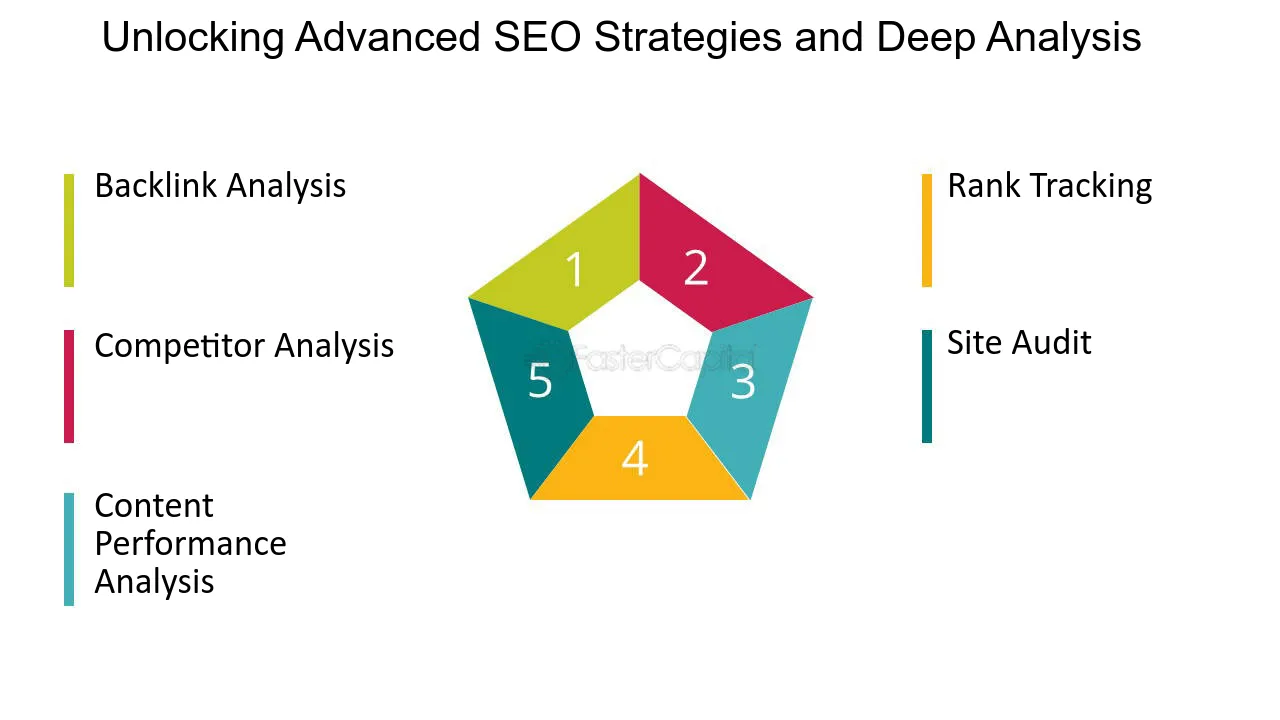
Unlocking Advanced SEO Strategies and Deep Analysis - Exploring best alternatives to ahrefs detailed comparison
2. Introduction to Advanced SEO Tools
Advanced SEO tools are software applications designed to assist businesses in implementing and managing their SEO strategies. These tools provide valuable data and insights that enable businesses to optimize their websites, track their rankings, analyze competition, fix technical issues, and measure the results of their SEO efforts. The key benefits of using advanced SEO tools include:
- Saving time: These tools automate many time-consuming tasks, allowing you to focus on strategy and decision-making.
- Improving efficiency: By providing actionable insights and recommendations, these tools help you make informed decisions and optimize your SEO efforts.
- Increasing accuracy: Advanced SEO tools provide accurate data and analytics, helping you make better-informed decisions based on real-time information.
- Generating valuable insights: These tools provide valuable data and insights that can help you uncover untapped opportunities, identify areas for improvement, and stay one step ahead of your competition.
Now let's dive into the different types of advanced SEO tools and explore their features and benefits.
3. Advanced SEO Techniques
Search Engine Optimization, or "SEO" for short, is a technique that can be used on a website to improve site visibility amongst search engines. It is a means of increasing the quantity and quality of traffic to a site from search engines, ideally resulting in increased sales or leads.
There are a number of methods that can be employed to improve SEO, but not all techniques are created equal. Some methods, such as keyword stuffing, can actually do more harm than good. Here we will focus on some advanced SEO techniques that, when used correctly, can have a positive impact on your website's ranking.
1. Make Use of Title Tags
Title tags are one of the most important elements of SEO. They are used to tell search engines what your website is about, and they also appear as the clickable link in search results. Make sure your title tags are descriptive and keyword-rich.
2. Optimize Your Content
Your website's content is what will ultimately determine your ranking in search results. Make sure your content is well-written, informative, and keyword-rich. Also, be sure to update your content regularly; fresh content is a key factor in maintaining a good ranking.
3. Use Meta Tags
Meta tags are snippets of code that help to describe your website's content. They are used by search engines to index your site and by browsers to display your website's description in search results. Be sure to include relevant keywords in your meta tags so that your site can be properly indexed and ranked.
4. Promote Your Website
One of the best ways to improve your website's SEO is to promote it through social media and other online channels. The more people that know about your site, the more likely they are to visit it. Additionally, links from high-quality websites will help to improve your ranking.
5. Monitor Your Progress
Keep track of your website's SEO progress by monitoring your web traffic and your position in search results. This will help you to identify what's working and what isn't, so that you can adjust your strategy accordingly.
By employing these advanced SEO techniques, you can improve your website's ranking and get more traffic from search engines. Just be sure to use them correctly, and don't forget to monitor your progress so that you can adjust your strategy as needed.
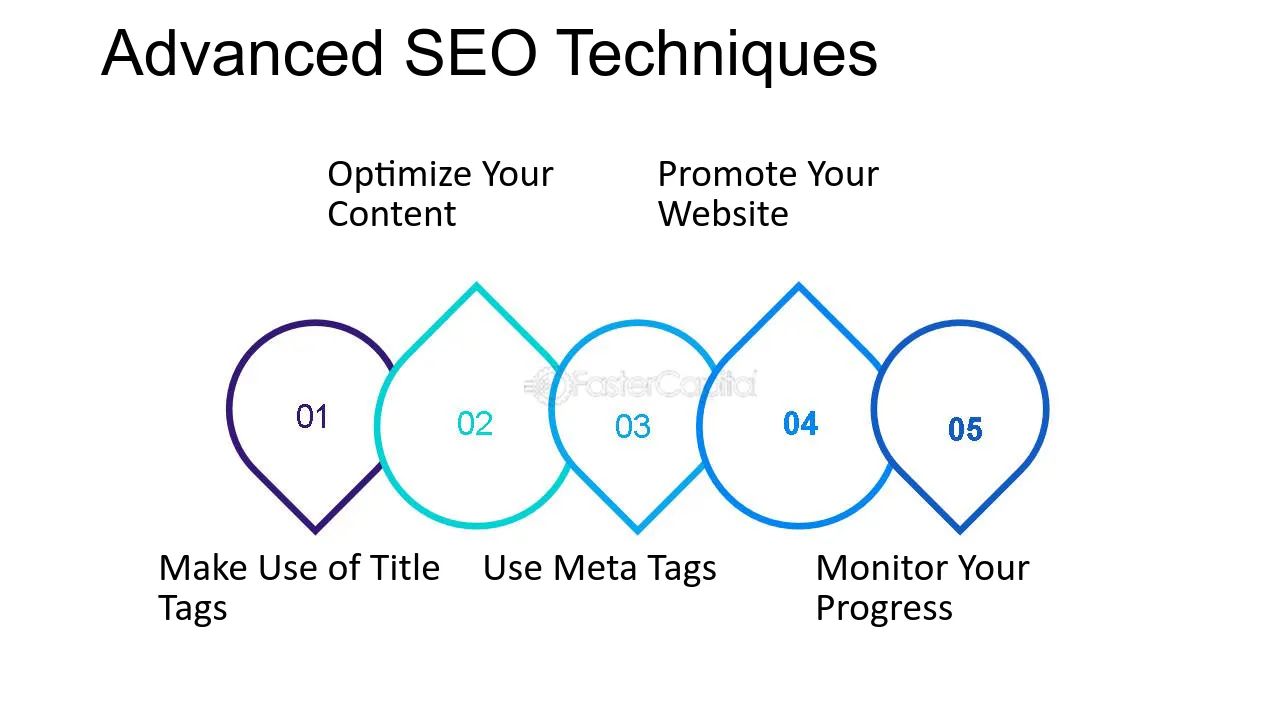
Advanced SEO Techniques - Get the Most Out of Search Engine Optimization
4. Advanced SEO strategies using technical techniques to improve your results
You may have the best product or service in the world, but if your website cant be found by potential customers, youll never reap the benefits of your hard work. Thats where search engine optimization, or SEO, comes in. By using a few simple techniques, you can make your website more visible in search engine results pages, and thus attract more visitors.
One common misconception about SEO is that its all about using the right keywords. While keywords are important, theyre just one part of the puzzle. In fact, if you stuff your content with too many keywords, you could actually be penalized by search engines. A better approach is to focus on creating high-quality content that will be of interest to your target audience.
In addition to keyword-rich content, there are a few other technical aspects of your website that can affect your SEO. For example, your websites title and meta tags are important elements that help search engines understand what your website is about. Your websites URL structure is also important; it should be easy to read and include relevant keywords.
Another technical aspect that can impact your SEO is your websites speed. If your website takes too long to load, visitors will likely click away before it even loads. Search engines also take website speed into account when determining ranking. To improve your websites speed, consider using a content delivery network (CDN) and optimizing your images.
If you want to improve your websites seo, start by creating high-quality, keyword-rich content. In addition, pay attention to your websites technical aspects, such as its title and meta tags, URL structure, and speed. By following these tips, you can attract more visitors to your website and improve your chances of ranking high in search engine results pages.
5. Advanced SEO Strategies for Startups
If you're a startup, then you know the importance of search engine optimization (SEO). After all, SEO is what helps you rank higher in search engine results pages (SERPs), which in turn drives more traffic to your website.
But what about advanced seo strategies for startups?
Just because you're a startup doesn't mean you can't implement advanced SEO tactics. In fact, there are some advanced SEO strategies that can be particularly effective for startups.
Here are four advanced SEO strategies for startups:
1. Target Long-Tail Keywords
As a startup, you may not have the brand recognition that larger companies have. That's why it can be helpful to target long-tail keywords.
Long-tail keywords are simply longer, more specific keywords. For example, "running shoes" is a short-tail keyword while "best running shoes for women with flat feet" is a long-tail keyword.
Long-tail keywords tend to be less competitive, which means they may be easier for you to rank for. And since they're more specific, they can also help you attract more targeted traffic.
2. Optimize for Local Search
If your startup has a physical location or serves a specific geographic area, then you need to make sure you're optimized for local search.
Local search optimization is all about making it easy for people in your area to find your business when they search for relevant keywords.
There are a few different things you can do to optimize for local search, such as claiming your business listing on Google My Business and other local directories. You should also make sure your website is mobile-friendly and that your NAP (name, address, and phone number) is consistent across the web.
3. Use Google AdWords
Google AdWords can be a great way to get your startup's website in front of more people. AdWords is Google's advertising platform, which allows you to place ads on Google.com and other Google properties.
AdWords can be particularly effective for startups because it allows you to specifically target your audience. For example, you can target people based on their location, keywords they've searched for, and even websites they've visited.
AdWords can be a bit of an investment, but it can be well worth it if you use it effectively.
4. Leverage Social Media
Social media is another great way to get your startup's website in front of more people. And since it's free to use, it's an especially attractive option for startups.
There are a few different ways you can use social media to drive traffic to your website. For starters, you can share your website's content on social media sites like Twitter and Facebook. You can also run social media ads or use social media influencers to promote your website.
No matter which approach you take, make sure you're creating shareable content that's relevant to your target audience.
Advanced SEO Strategies for Startups
As a startup, you may not have the brand recognition that larger companies have. That's why it can be helpful to target long-tail keywords. Long-tail keywords are simply longer, more specific keywords. For example, "running shoes" is a short-tail keyword while "best running shoes for women with flat feet" is a long-tail keyword. Long-tail keywords tend to be less competitive, which means they may be easier for you to rank for. And since they're more specific, they can also help you attract more targeted traffic. If your startup has a physical location or serves a specific geographic area, then you need to make sure you're optimized for local search. Local search optimization is all about making it easy for people in your area to find your business when they search for relevant keywords. There are a few different things you can do to optimize for local search, such as claiming your business listing on Google My Business and other local directories. You should also make sure your website is mobile-friendly and that your NAP (name, address, and phone number) is consistent across the web. Google AdWords can be a great way to get your startup's website in front of more people. AdWords is Google's advertising platform, which allows you to place ads on Google.com and other Google properties. AdWords can be particularly effective for startups because it allows you to specifically target your audience. For example, you can target people based on their location, keywords they've searched for, and even websites they've visited. AdWords can be a bit of an investment, but it can be well worth it if you use it effectively. Social media is another great way to get your startup's website in front of more people. And since it's free to use, it's an especially attractive option for startups. There are a few different ways you can use social media to drive traffic to your website. For starters, you can share your website's content on social media sites like Twitter and Facebook. You can also run social media ads or use social media influencers to promote your website. No matter which approach you take, make sure you're creating shareable content that's relevant to your target audience. Implementing even just a few of these advanced SEO strategies can make a big difference for your startup. So don't wait start working on them today!
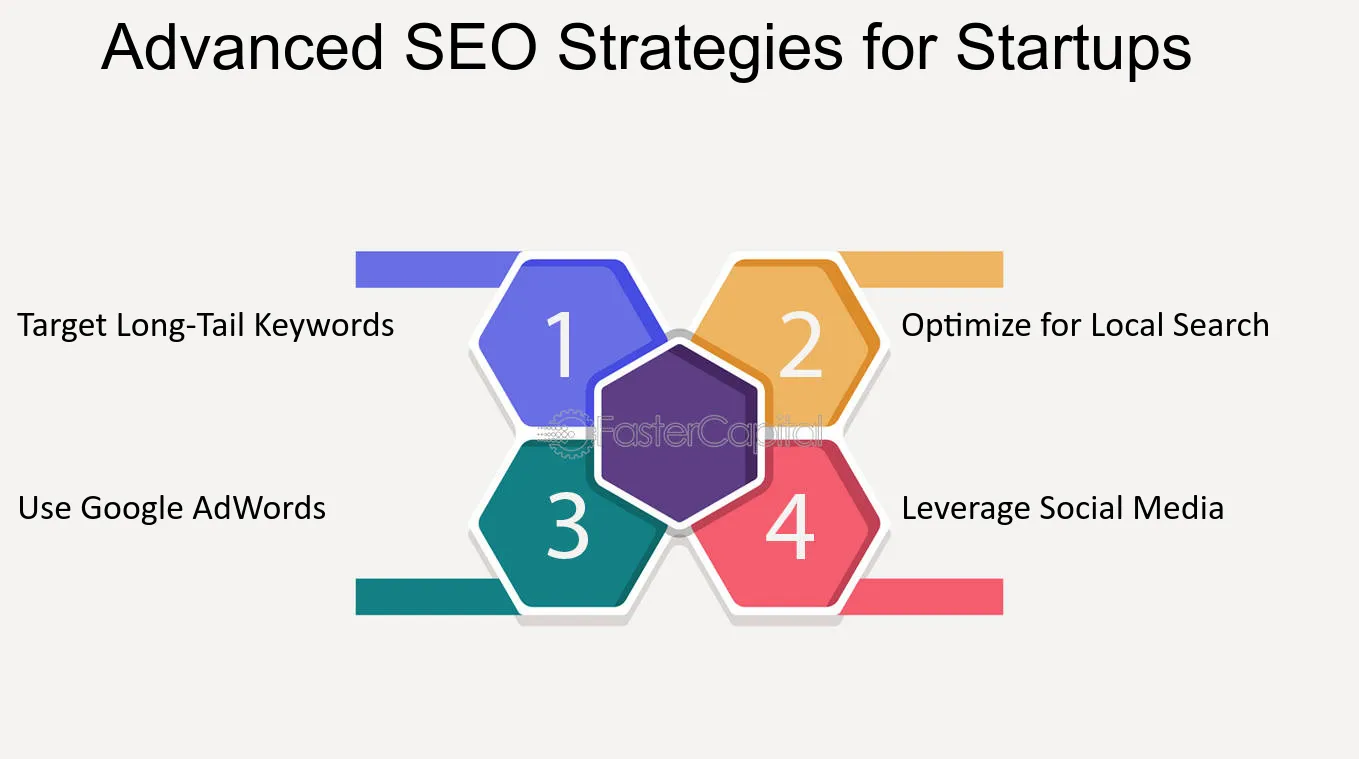
Advanced SEO Strategies for Startups - Improve Your Startup s Search Engine Optimization
6. Advanced SEO Techniques for AI-Generated Content
As we all know, AI-generated content has been on the rise in recent years. With the help of machine learning and natural language processing, AI has become capable of writing articles, news reports, and even books. However, as much as AI is capable of producing content, it still lacks the human touch that makes content engaging and relatable. This is where the importance of SEO comes in. By optimizing AI-generated content for search engines, we can ensure that it reaches the right audience and generates the desired results.
2. Keyword Research
One of the most important aspects of seo is keyword research. This involves identifying the keywords and phrases that your target audience is searching for and incorporating them into your content. With AI-generated content, keyword research becomes even more crucial. Since the content is generated by a machine, it is important to ensure that the keywords are relevant and used in the right context. For example, if you are writing an article about "best smartphones", the AI needs to understand that the focus is on smartphones and not on other gadgets.
3. Content Optimization
Once you have identified the keywords, the next step is to optimize your content for search engines. This involves using the keywords in the title, meta description, and throughout the content. However, with AI-generated content, it is important to ensure that the keywords are used in a natural and organic way. The content should not sound forced or robotic. For example, if your keyword is "best smartphones", the AI should be able to write a sentence like "Smartphones have become an essential part of our lives and here are the best ones available in the market".
4. Internal Linking
Internal linking is another important aspect of SEO. It involves linking to other pages on your website from within your content. This helps search engines understand the structure of your website and the relevance of your content. With AI-generated content, internal linking can be challenging as the machine may not understand the context of the content. However, by providing clear guidelines and using tools like GPT-3, you can ensure that the AI generates content that is optimized for internal linking.
5. Image Optimization
Images are an important part of any content. They make the content more engaging and help break up the text. However, images can also impact the loading speed of your website, which can affect your SEO. With AI-generated content, it is important to ensure that the images are optimized for size and quality. This will ensure that the content loads quickly and does not impact the user experience.
6. Mobile Optimization
With the rise of mobile devices, mobile optimization has become crucial for SEO. This involves ensuring that your website and content are optimized for mobile devices. With AI-generated content, it is important to ensure that the content is responsive and adapts to different screen sizes. This will ensure that your content is accessible to a wider audience and generates the desired results.
7. Conclusion
In conclusion, SEO is an important aspect of AI-generated content. By optimizing your content for search engines, you can ensure that it reaches the right audience and generates the desired results. With the right tools and techniques, you can create AI-generated content that is engaging, informative, and optimized for search engines.
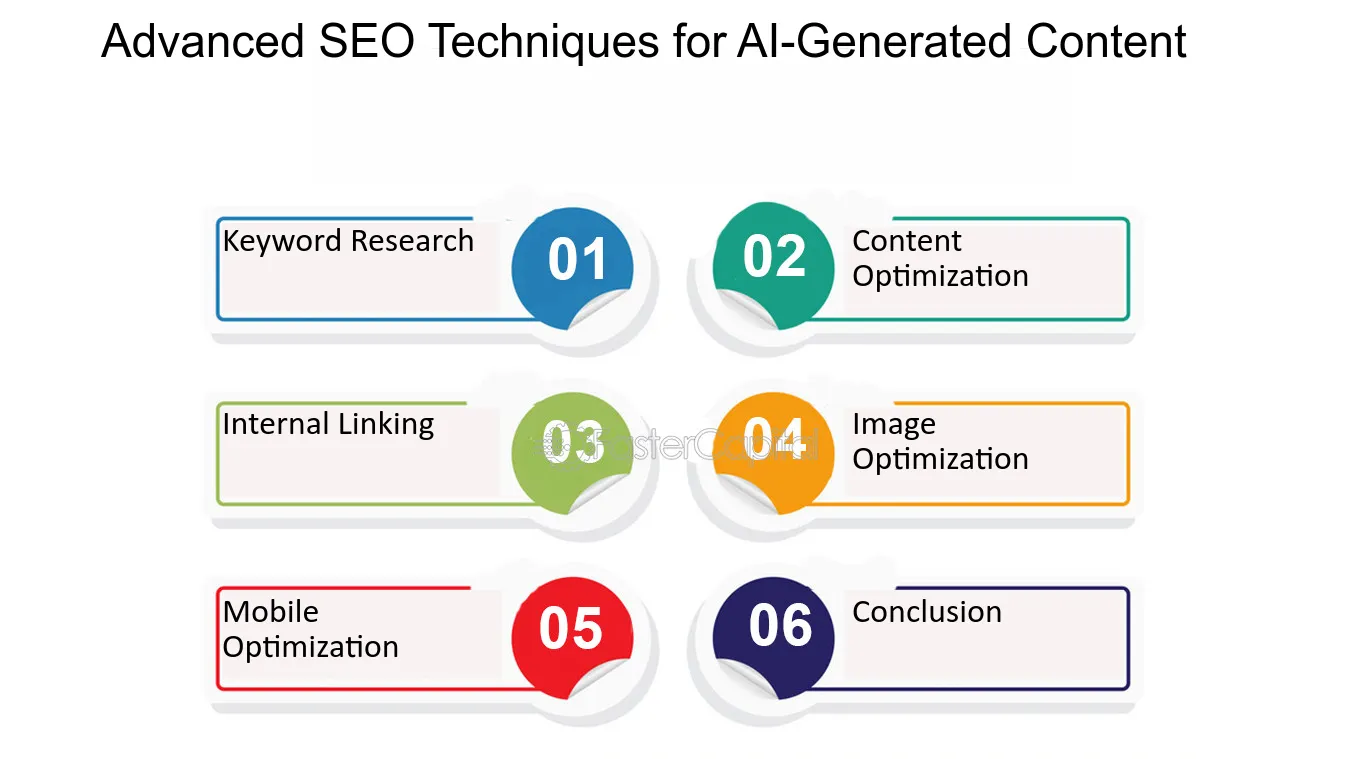
Advanced SEO Techniques for AI Generated Content - Mastering art of ai article writing top courses to enhance skills
7. Implementing Advanced SEO Techniques
Search engine optimization (SEO) is a vital component of customer acquisition in today's digital landscape. By implementing advanced SEO techniques, you can improve your website's visibility in search engine results and attract organic traffic. Here are some advanced SEO techniques to consider:
1. conduct keyword research: Identify relevant keywords and phrases that your target audience uses when searching for products or services in your industry. Use keyword research tools to discover high-volume and low-competition keywords.
2. Optimize on-page elements: Optimize your website's on-page elements, including title tags, meta descriptions, headers, and content. Incorporate your target keywords naturally to improve your website's visibility in search results.
3. build high-quality backlinks: Earn high-quality backlinks from reputable websites in your industry. This can be achieved through guest blogging, influencer collaborations, or creating shareable content that naturally attracts backlinks.
4. optimize for local search: If you have a physical location or target a specific geographic area, optimize your website for local search. This includes creating a google My Business listing, optimizing your website for local keywords, and encouraging customer reviews.
For example, a digital marketing agency can implement advanced SEO techniques to improve their organic search visibility. They can conduct keyword research to identify relevant keywords like "digital marketing services" or "SEO agency." By optimizing their website's on-page elements, incorporating these keywords, and earning backlinks from reputable industry websites, they can increase their website's ranking in search engine results and attract organic traffic.
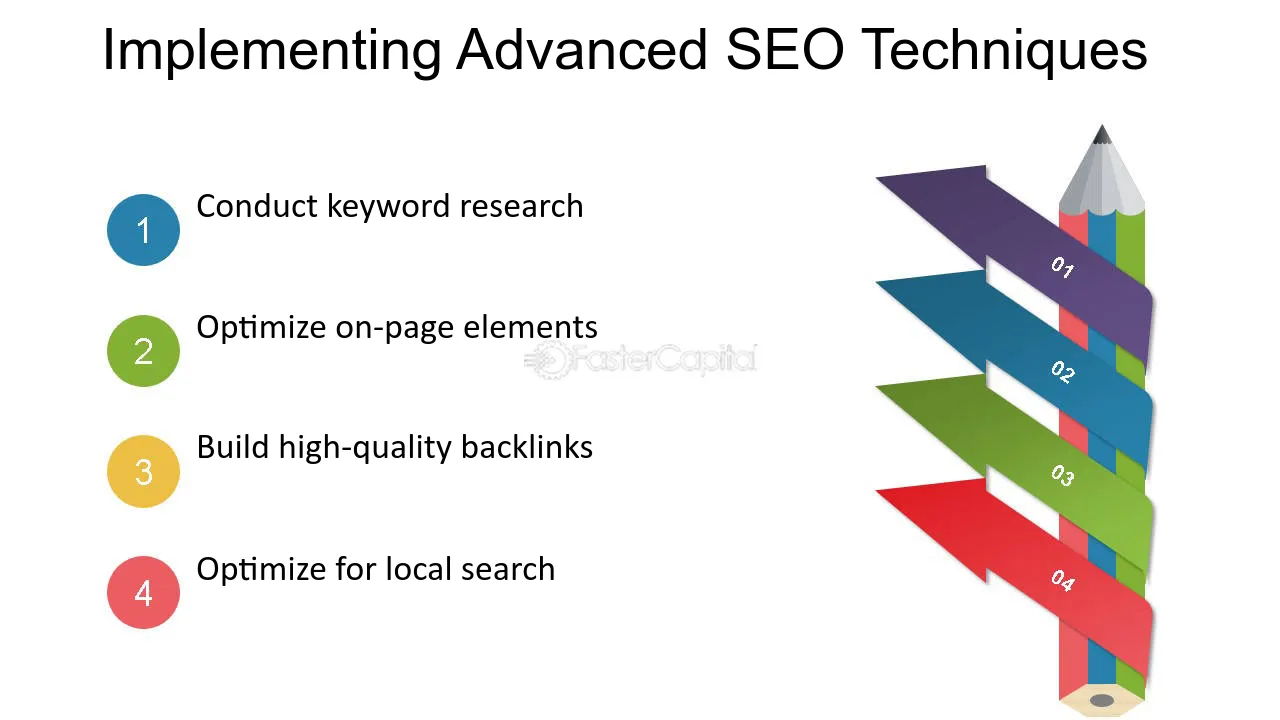
Implementing Advanced SEO Techniques - Navigating challenges of customer acquisition in crowded market
8. Advanced SEO Tactics for Startups
As a startup, you need to get the most out of your website and SEO can help you do that. SEO (Search Engine Optimization) is the practice of improving your websites visibility in search engine results pages (SERPs). This means that your website will appear at the top of the list when people search for words related to your business.
Having an effective SEO strategy is essential for any business, but it can be especially beneficial for startups. With the right SEO tactics, you can get more visibility, more traffic, and ultimately more conversions. To get the most out of your SEO efforts, you should use advanced tactics tailored to startups.
One of the most important tactics is keyword research. Start by identifying the keywords that are relevant to your business and then use them in your content. You should also focus on long-tail keywords, which are phrases that are more specific than generic keywords. Long-tail keywords have less competition, so they can be easier to rank for.
Another useful tactic is link building. Link building involves getting other websites to link back to yours, which helps improve your rankings in SERPs. You can get links by guest posting on other sites, creating useful content that others will link back to, and reaching out to influencers and other businesses in your industry.
Its also important to optimize your website for mobile devices. Mobile optimization means making sure that your website looks good on any device, from phones to tablets and laptops. This way, you can ensure that people can find and access your website no matter what device theyre using.
Finally, you should focus on local SEO. Local SEO involves optimizing your website for local searches, so that it appears at the top of SERPs when people search for businesses in a certain area. To do this, you should make sure that you have accurate contact information on your website, add location pages with relevant content, and create local listings on popular directories like Google My Business.
These are just a few advanced SEO tactics for startups that you should consider implementing. By focusing on these tactics and optimizing your website accordingly, you can make sure that your business gets the most out of its SEO efforts and reaches a wider audience.
9. Track and Analyze Results with Advanced SEO Tools
Monitoring and reporting are essential aspects of any SEO strategy. They allow you to track the performance of your website, evaluate the effectiveness of your SEO efforts, and make data-driven decisions. By using advanced SEO tools for monitoring and reporting, you can gain valuable insights into your website's performance and optimize your strategy accordingly.
1. Google Analytics
Google Analytics is a powerful web analytics tool that provides comprehensive data on your website's performance. It allows you to track key metrics such as organic traffic, bounce rate, conversion rate, and more. Google Analytics also offers features such as goal tracking, custom reports, and audience segmentation, helping you gain insights into your website's performance and user behavior.
2. Google Search Console
Google Search Console, mentioned earlier in this article, is not only a tool for on-page optimization but also a valuable resource for monitoring and reporting. It provides data on your website's visibility in Google search results, including the number of impressions, clicks, and average position. Google Search Console also offers features such as crawl statistics, sitemaps, and mobile usability reports, helping you monitor and improve your website's performance.
3. SEMrush Position Tracking
SEMrush Position Tracking is a feature within the SEMrush platform that allows you to track your website's rankings for specific keywords. With SEMrush Position Tracking, you can monitor your rankings on a daily basis, track your competitors' rankings, and analyze the impact of your SEO efforts. The tool also provides features such as visibility trends, ranking distribution, and advanced reporting, helping you stay on top of your SEO game.
When it comes to monitoring and reporting, it's important to define clear goals and metrics that align with your business objectives. By regularly tracking and analyzing your website's performance, you can identify areas for improvement, optimize your SEO strategy, and achieve better results.
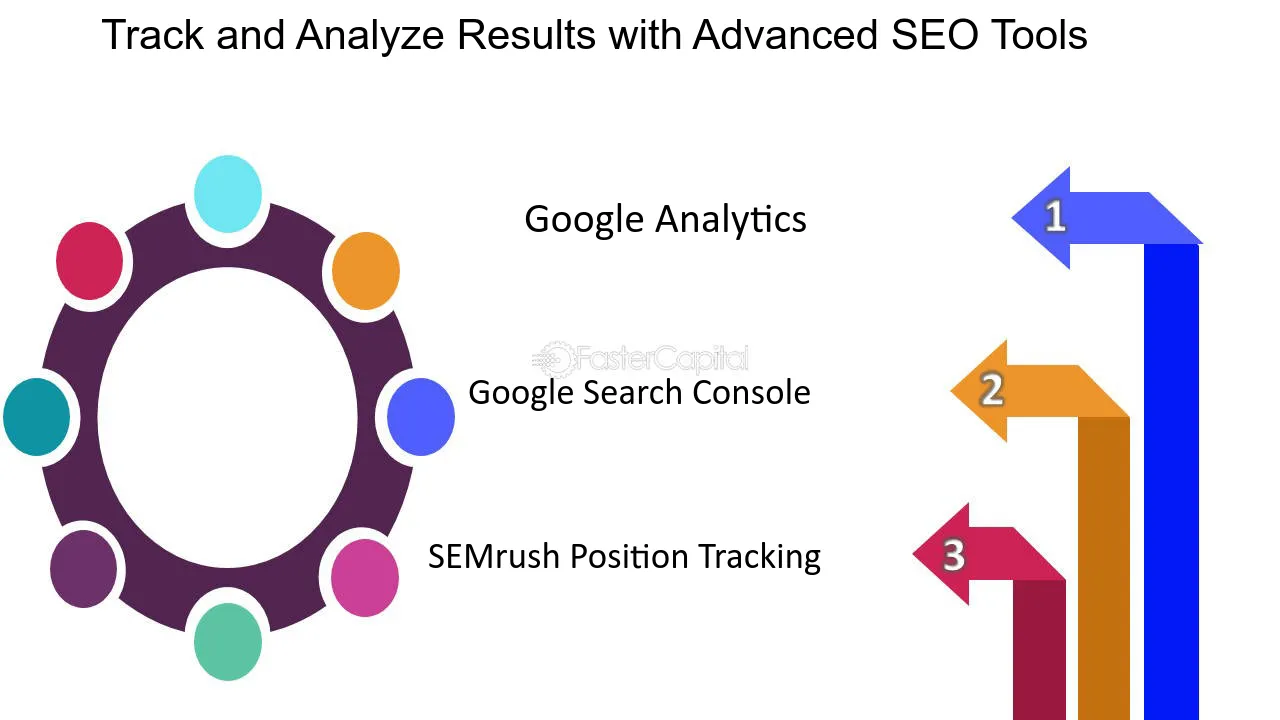
Track and Analyze Results with Advanced SEO Tools - Revolutionize seo strategy with these top notch tools
10. Advanced SEO Strategies and Tools for Continuous Blog Traffic Growth
To sustain continuous blog traffic growth, it's essential to leverage advanced SEO strategies and tools. Here are some advanced techniques to consider:
10.1. User Intent Optimization: User intent refers to the underlying motivation or goal behind a user's search query. Optimize your blog content to align with user intent by understanding the different types of intent (informational, navigational, transactional) and tailoring your content accordingly. Tools like AnswerThePublic or Google's "People Also Ask" feature can help you uncover user intent-driven topics.
10.2. Featured Snippets: Featured snippets are the concise answers that appear at the top of search engine results pages, providing users with quick information. Optimize your blog content to target featured snippets by answering popular questions in a concise and structured manner. This can increase your visibility and drive more traffic to your blog.
10.3. Video SEO: Video content is increasingly popular, and optimizing your blog for video SEO can help drive traffic. Host videos on your blog or create a YouTube channel to complement your blog. Optimize video titles, descriptions, and tags with relevant keywords to improve video visibility in search results.
10.4. Local SEO: If your blog has a local focus, implementing local SEO strategies can help attract relevant traffic. Claim your blog's listing on Google My Business, optimize your content for local keywords, and encourage customers or readers to leave reviews. This can increase your blog's visibility in local search results and drive traffic from nearby users.
10.5. Structured Data Markup: Structured data markup, also known as schema markup, provides search engines with additional context about your blog content. Implement structured data markup on your blog to enhance its appearance in search engine results, increase click-through rates, and improve overall SEO. Tools like Google's Structured Data Markup Helper can assist you in implementing schema markup.
10.6. AI-Powered SEO Tools: Artificial intelligence (AI) is revolutionizing the SEO landscape, offering more advanced insights and automation capabilities. Consider using AI-powered SEO tools like MarketMuse, Frase, or BrightEdge to perform in-depth keyword research, content optimization, and competitor analysis. These tools can help you stay ahead of the competition and drive continuous traffic growth.
By implementing advanced SEO strategies and leveraging cutting-edge tools, you can stay at the forefront of SEO practices and ensure continuous blog traffic growth.
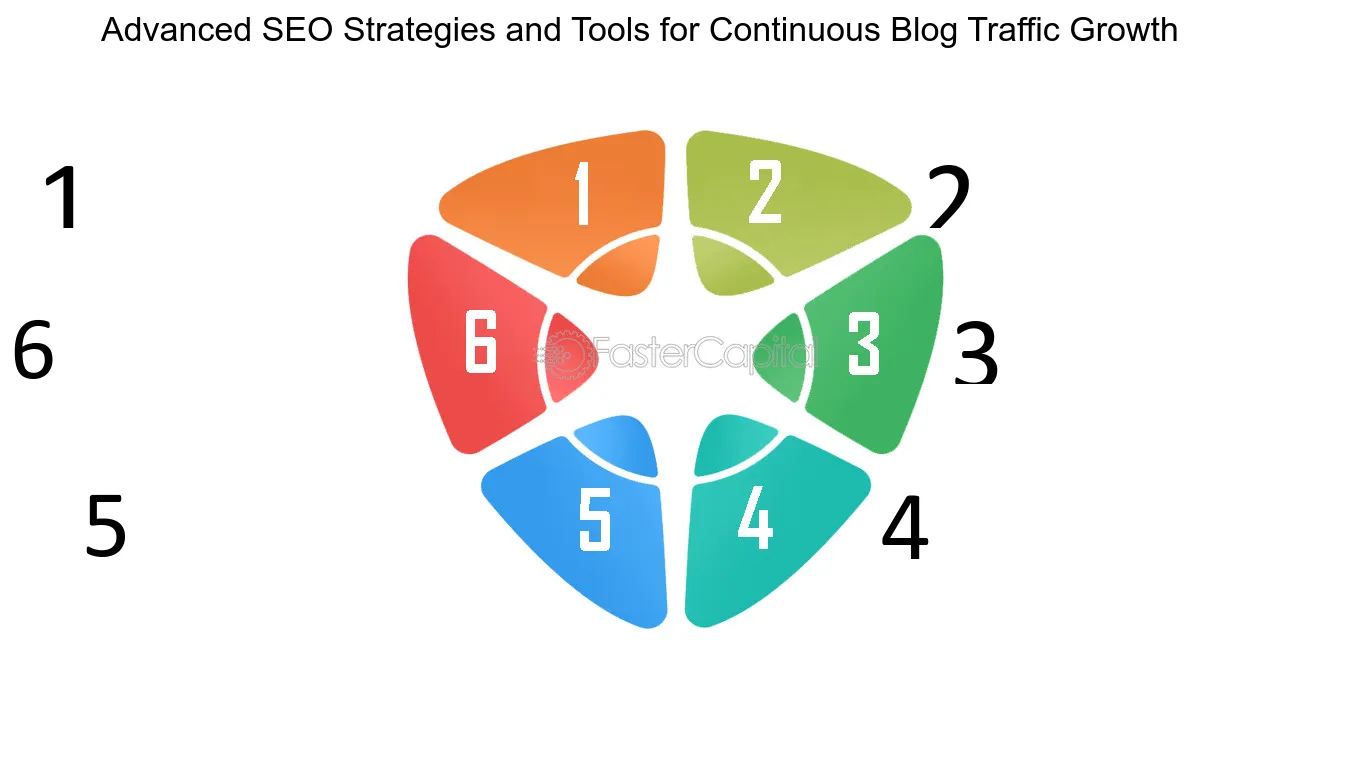
Advanced SEO Strategies and Tools for Continuous Blog Traffic Growth - Role of seo in driving traffic to blog
11. Advanced SEO strategies Some advanced tactics you can use to further improve your SEO
Advanced SEO strategies: Some advanced tactics you can use to further improve your SEO.
1. Improve your website's load time
One of the most important factors in SEO is your website's load time. Search engines want to provide their users with the best possible experience, so they prefer websites that load quickly. If your website is slow, it will not only rank lower in search results, but users will also be less likely to stick around.
There are a few things you can do to improve your website's load time:
Use a content delivery network (CDN). A CDN stores your website's static content (images, CSS, JavaScript) on servers around the world, so that users can access it from the closest server. This can significantly improve your website's load time.
Optimize your images. Large images can take a long time to load. You can reduce their file size without reducing quality by using an image optimization tool like Kraken.io or ImageOptim.
Minimize your code. Excess code can make your pages slower to load. You can minify your HTML, CSS, and JavaScript code using a tool like Minify Code.
2. Optimize your website for mobile devices
Mobile devices are now the most common way people access the internet, so it's important to make sure your website is optimized for them. mobile-friendly websites are easier to use on small screens and can load faster on slow mobile connections.
To make sure your website is mobile-friendly, you can use Google's Mobile-Friendly Test tool. Just enter your website's URL and Google will tell you if there are any problems with your site's design or code that need to be fixed.
3. Improve your website's content
One of the best ways to improve your website's SEO is to regularly add new, high-quality content. This could be in the form of blog posts, product descriptions, infographics, or anything else that is informative and useful to your users. Not only will this help your website rank higher in search results, but it will also help keep users engaged and coming back for more.
4. Promote your content with social media
Social media is a great way to promote your website's content and get it in front of a larger audience. When you share something on social media, it has the potential to be seen by thousands or even millions of people. This can help increase your website's traffic and improve its seo.
5. Build backlinks to your website
Backlinks are links from other websites to yours. They are an important factor in SEO because they show search engines that other websites think your site is relevant and trustworthy. The more backlinks you have, the higher your site will rank in search results.
There are a few ways to get backlinks:
Reach out to other websites in your niche and see if they're interested in linking to your site. This can be done by emailing the webmaster or writing a guest blog post for their site.
Submit your site to directories and link roundups. This is a good way to get high-quality backlinks from relevant websites.
Create useful resources that other websites will want to link to (e.g., infographics, whitepapers, ebooks).
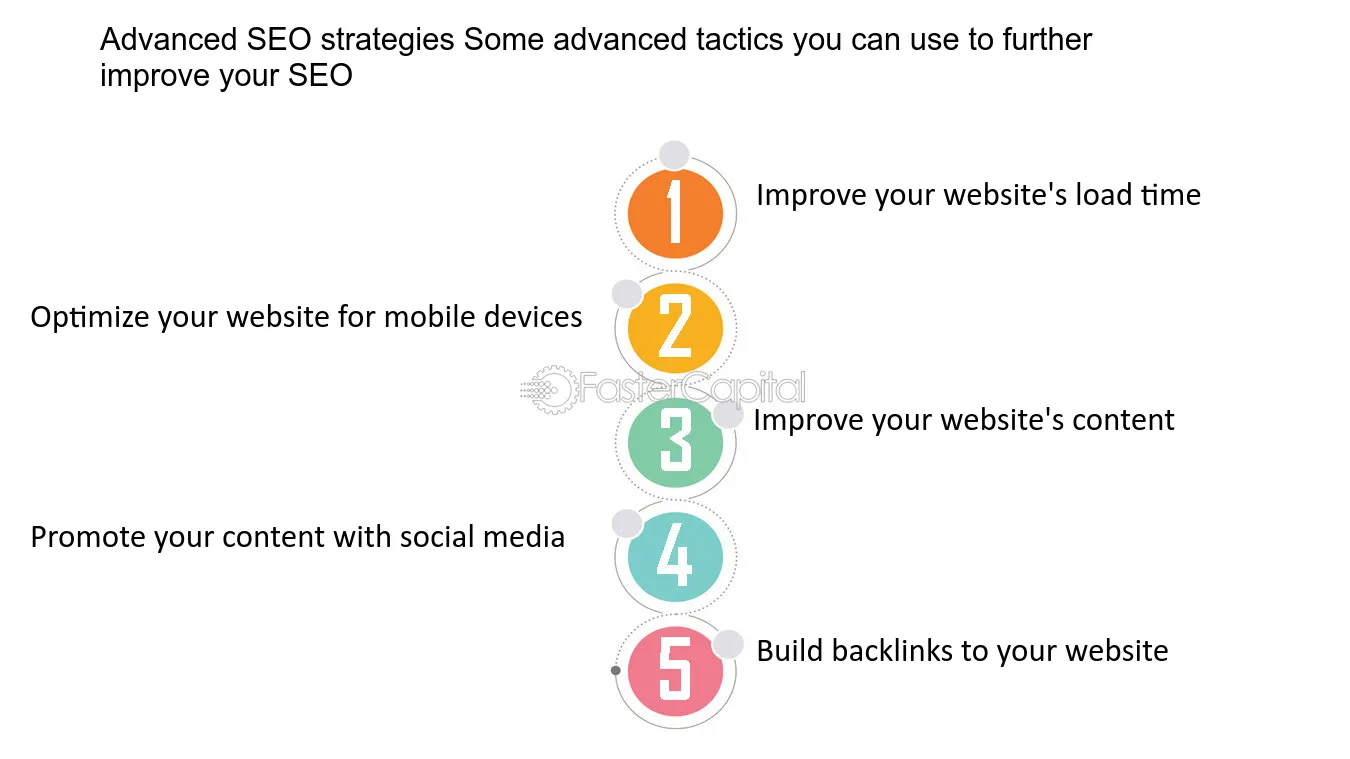
Advanced SEO strategies Some advanced tactics you can use to further improve your SEO - The Beginner s Guide to Search Engine Optimization SEO for Startups